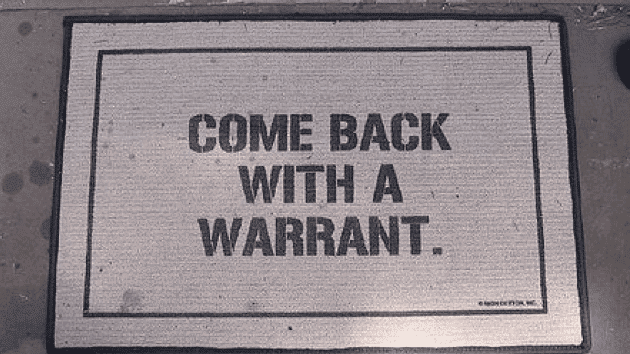
Whenever a police officer asks to search your home or vehicle, you have two options: voluntarily consent to a search or refuse to comply unless the police have a search warrant. Telling the cops to “come back with a warrant” is not only your right but usually – if not always – a smart idea.
What is a search warrant and how do they work in Minnesota? Most people understand that a search warrant is a court-authorized document allowing police to search specified premises. But who can execute a search warrant? When can it be executed? We discuss some truths and myths about Minnesota search warrants.
Minnesota Search Warrant Laws
1. Only the Sheriff can execute a search warrant. False! Any peace officer, sheriff, deputy sheriff, police officer, constable, conservation officer, agent of the Bureau of Criminal Apprehension, agent of the Division of Gambling Enforcement, or University of Minnesota police officer can execute a search warrant in Minnesota.
2.The police only get warrants for felony offenses. False! Search warrants can be executed for any felony, gross misdemeanor, misdemeanor, or municipal ordinance for which a misdemeanor sentence may be imposed.
3.When police have a search warrant, they can look for anything they want. False! Judges may only grant search warrants when police particularly describe the place they want to search and the persons or things they want to seize. In other words, courts will only grant search warrants when police present enough information for a judge to make a practical, commonsense decision that there is a fair probability that contraband or evidence of a crime will be found in a particular place.
4.The police must always “knock and announce” their presence before entering a house. False! The police do not always have to announce their presence. They must have a reasonable suspicion that knocking and announcing will create a danger, or will lead to destruction of evidence.
5.Police can only execute a search warrant during the day. True, for the most part. Search warrants can only be executed during the day unless the court determines that a nighttime search is necessary. Usually this means there is a reasonable suspicion that a daytime search is too dangerous for police or that evidence will be destroyed.
6.Any judge can authorize a search warrant. False! A search warrant may be issued by any judge, other than a probate judge, having jurisdiction in the county where the place to be searched is located.
7.Only police officers in the county where the search warrant is to be executed can perform a search. False! A search warrant can be issued to a police officer from inside or outside the officer’s jurisdiction. So if a Hennepin County police officer wants to search a house in Ramsey County, a Ramsey County judge must authorize the search but the Hennepin County (or any other county) can search the home.
8.Search warrants have no expiration date. False! Once signed by a judge, search warrants must be executed within 10 days otherwise the warrant becomes invalid.
Keyser Law, P.A. is a Minneapolis-based criminal defense law firm. We represent people under investigation or charged with criminal offenses in state and federal court. If interested in learning more about Minnesota search warrants or if the police executed a search warrant on your home, call us at (612) 338-5007 for a free consultation.





